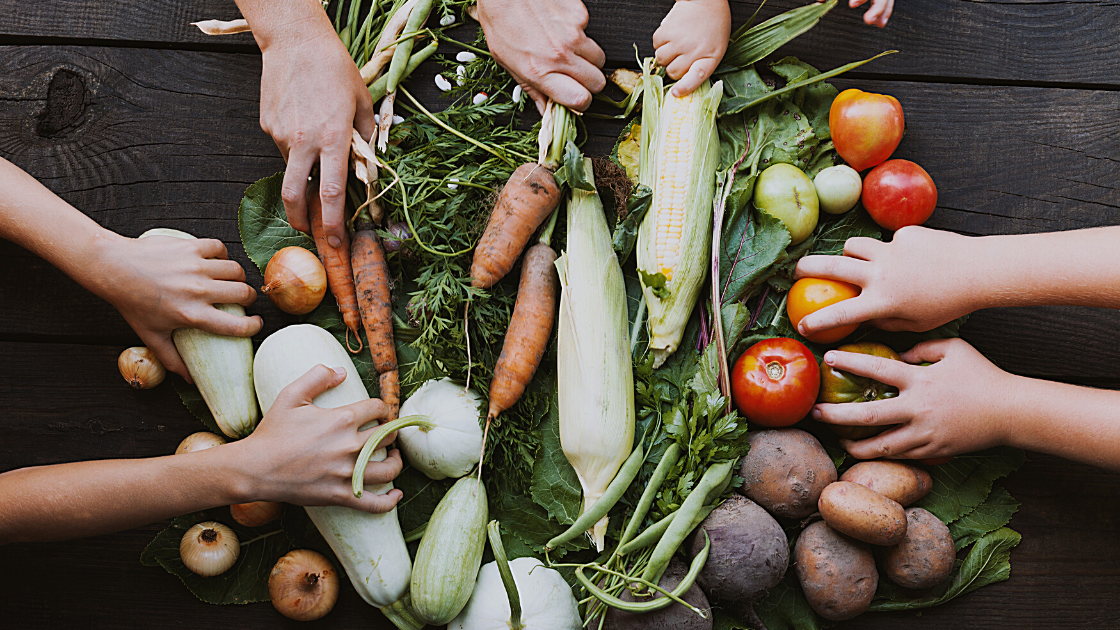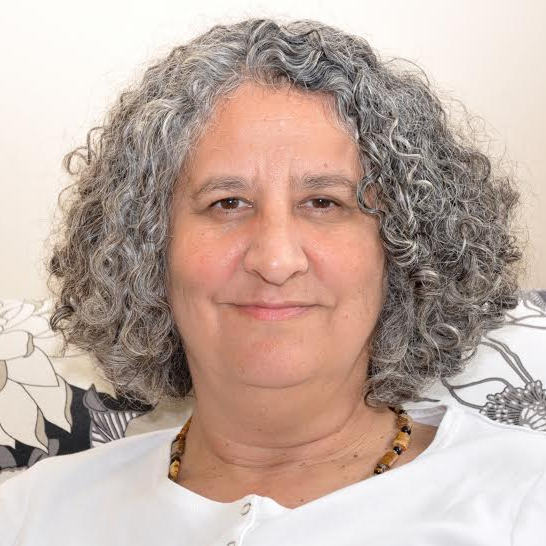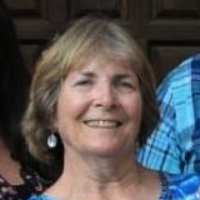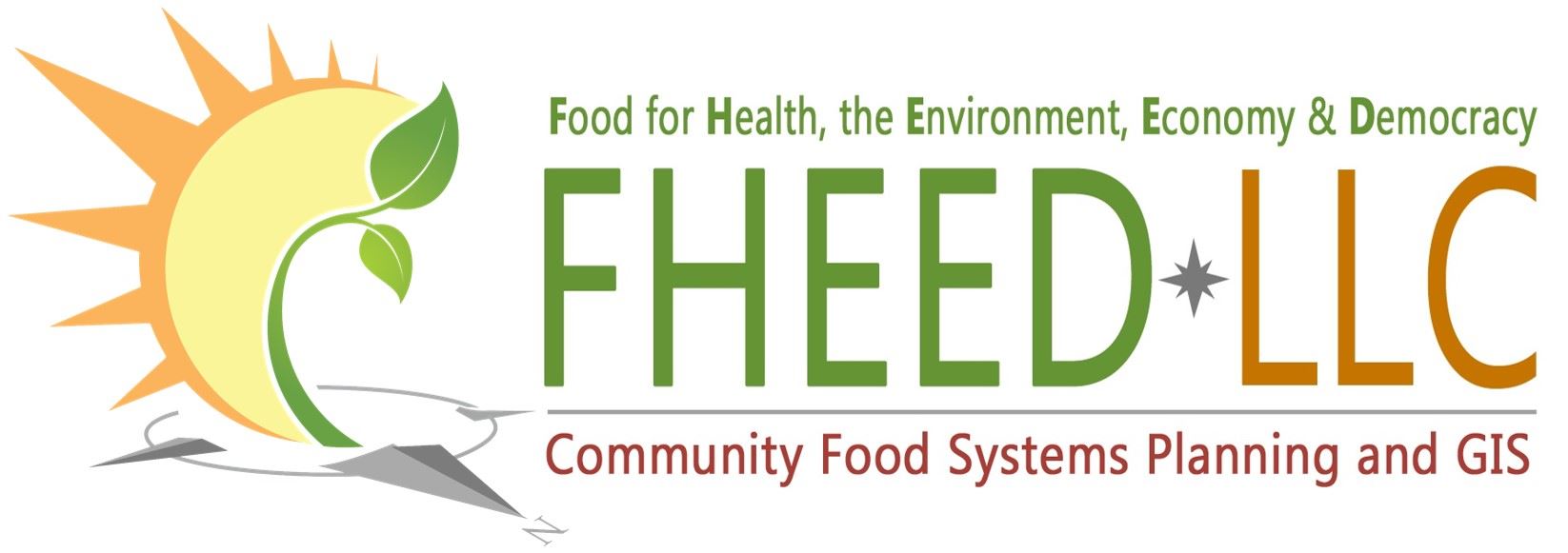
Follow Up: December Florida Food Forum
Community Gardens: What's Been Done, What's Ahead
If you were unable to attend the meeting, the full presentation is available to watch online here.
To keep the conversation going, please visit our forum on Community Gardens: What's Been Done, What's Ahead here to add your thoughts and comments.
On Friday, December 18th, the Florida Food Forum on "Community Gardens: What’s Been Done, What’s Ahead" featured guest panelists Kitty Wallace, Garden Coordinator of Tampa Heights Community Garden and Co-founder of the Coalition of Community Gardens – Tampa Bay and Judith Gulko, Co-founder and Co-organizer of the Rotary Community Garden and Food Forest of Coral Springs.
“There is a tremendous interest in community gardens which has accelerated recently due in part to the devastating impact of COVID-19 and the pandemic that is still sweeping the country, which has impacted food security and brought a heightened awareness of the fragility of the industrial food system. It has also inspired many to embrace local food production, led others to network and organize food sovereignty projects, and greatly expanded participation in community gardens,” said Dell deChant, Chair of the Policy Committee and Host of the forum, at the start of the program.
The first presenter, Judith Gulko, highlighted six of the community gardens in Southeast Florida, their work and the challenges they face.
The first garden she introduced was the Rotary Community Garden and Food Forest of Coral Springs, which she helped co-found, along with the Rotary Club. Judith explained that unlike some of the other gardens she would introduce, Coral Springs is not a food desert.
“The Rotary sponsored us with the city so we were set up well from the start,” she said.” But we, volunteers and residents, run the garden.”
The mission of the garden is, “to teach people how to grow food, to build community, and we are really passionate about bringing in plants that thrive here, providing a healthy ecosystem for plants, people, pollinators and other animals.”
One of the unique features of the garden is that it is in a fenced in area on city land in a park, however it is adjacent to an unfenced food forest. Sometimes this leads to thefts, but Judith says that there is a great amount of donations made as well. Another unique part of the garden is that it houses a memorial for the Parkland shooting and serves as a special place for the community.
The Fruitful Field was the next highlighted garden. Located in a food desert in Pompano Beach, the mission of the garden is to serve under-privileged populations and educate youth, and is currently run by Chris Reesor.
The Fruitful Field sits on a church property and is able to donate about 4 tons of food per year. In addition, for every CSA share purchased, an in-kind match is donated.
With the success of the first garden, a CRA grant was received from the City of Pompano which was used to create a second garden, the Patricia Davis Community Garden, which is stewarded by GrowCity youth. Through the grants, youth are provided paid internships for their work.
“GrowCity fosters hands-on organic gardening, healthy cooking, healthy eating—among its many objectives,” said Judith.
Similar to The Fruitful Field, the Delray Beach Children’s Garden is also located on church grounds. However, with its prime location in downtown Delray Beach, one of the challenges is the increasing amount they pay to rent the land.
Cofounded by Shelly Zacks and Jeannie Fernsworth, Christina Nicodemo is Director of this unique garden. What makes this garden different, is that it was designed by children with permaculture principles and includes a secret garden for kids only.
The mission of this garden is eco-consciousness in children’s garden education; adventure education and play; and they follow the Olmstead Quaker principles of having areas for organizing, greeting, gathering and meeting. The garden also services 50 homeschool children with weekly classes, and 25 “Mommy and Me” classes. Through its various service projects, grants and donations, the garden has been able to survive.
The Lauderdale Lakes Community Garden, located in a food desert, is run by Beverly Williams, who is the founder and now Vice Mayor.
“For many of our gardens,” Judith said, “development is always the monster that we are dealing with.”
As the native soil is contaminated, the gardens use raised beds and concrete blocks and can be moved, which is part of its design. The garden offers low-cost box rentals, they teach organic gardening skills, and feed an Alzheimer’s Daycare with the fresh nutritious foods they grow. There is also a children’s garden nearby.
The next garden Judith introduced is a lesson in resilience. Highland Gardens Community Garden which was located in Hollywood from about 2008 to 2018 was founded by Maria Jackson Ratliff, with help from Adriana Algieri. The garden was managed until the land was sold to a developer, then part of the garden was relocated to a private school in Hollywood.
Recently, they began the East Hollywood Food Yard project which develops food yards and a new space for kids on diversion has been created as well.
Miramar Community Garden, one of the oldest in the area, was last garden Judith highlighted. Run by Rita Brown, the garden is located in a city park.
The garden is all organic, sustainable, and environmentally friendly, and was the first demonstration of a “micro-farming system” in Broward County.
The mission of the garden is to create a network of healthy food sources of naturally grown vegetables and fruits, a social network for garden volunteers to learn about the urban agricultural industry and the opportunity for vocational training.
Judith finished her presentation by acknowledging her partners Jackie ida and Satya Rudin.
The next presentation was given by Kitty Wallace, who began her talk by introducing her background and the history of community gardens in Florida.
After co-founding and managing the Tampa Heights Community Garden for 10 years, Kitty then co-founded the Coalition of Community Gardens, Inc., a network of community gardens dedicated to supporting the success of community gardening. Working closely with her partner Lena Young Green, Kitty has seen a transformation in the state of community gardens in Florida.
“In the 1970s, due to the energy crisis, there was a resurgence of victory gardens in the State. Then in the 1990s, the American Community Garden Association performed a survey and found that Sarasota was the only city in Florida that was found to have a community garden at that time. Into the 2000’s, with additional interest in environment, health and community, interest in gardening has increased,” Kitty explained. “You can see where we've come from the 1990s with one city with garden.”
What is a community garden?
“A community garden is a single piece of land gardened collectively by a group of people,” Kitty said. “There are many ways to organize a community garden, as many ways as people who get together who have an idea of how they want to do their garden—led by their children, led by others in the community, but where are we now?”
At the federal level, Kitty notes that there is now an Office of Urban Agriculture. Established through the 2018 Farm Bill, its mission is to encourage and promote urban, indoor, and other emerging agricultural practices, including community composting and food waste reduction.
Why is urban agriculture important today?
“As we’ve seen what’s happened to us since March, we see a fragile food system in place. There are flaws, there are gaps, there are components that break down, there is an impact in food production, and even meat processing plants being affected. So, everyone is keenly aware of this food system fragility,” Kitty said. “So, we turn to solutions such as improving local production and increasing access to fresh nutritious produce for the health of community and the health of the environment.”
Kitty noted that according to research on successful community gardens by Dr. Joseph England at USF, there are three main things that contribute to a garden being successful:
1. The people feel very valued about the produce they are growing
2. The people feel important about the meaningfulness of donating to others
3. The celebrations that happen in the garden are important to the success of the garden.
As for research on failed community gardens Kitty said, “Everyone knows this; drop a garden where no one wants it and it will fail! So, it’s important to have everyone in the community being a part of the development of the garden, setting the goals, planning the garden, and supporting the garden.”
What is ahead?
“Community gardens can play an important role in improving local production and distribution at the local level. So, I’m suggesting that you look at your local area, and see how you can help strengthen local government support for community gardening.”
As for policy, Kitty performed research on several of the cities throughout the state, and found there are a wide range of policies in each municipality.
“From the state level, the State of Florida supports front yard gardening—that infamous bill that was passed that disallowed home rule. Individual municipalities cannot ban front yard gardens because of this state rule. But what is key for the growth of community gardens is that there is support from the local municipality.”
Although gardens play an important role individually filling local production gaps, Kitty said that the best strategy to accomplish a goal is to form a network of community gardens because more food can be produced and better distribution can be planned.
What can you do?
“I’m advocating that people pay attention to what the food insecurity figures are near you,” Kitty said. “The USDA identifies census tracks as Food Deserts: low-income census tracts with a substantial number of residents with low levels of access to retail outlets selling healthy and affordable foods are defined as food deserts. And there is a Food Desert Locator where you can find out if you are within a couple of miles of a food desert or are you in a food desert.”
By knowing where the food deserts are, you can then advocate for local policies that support community gardens in those areas. Looking at other cities that have well-thought-out policies and procedures for supporting community gardens is a great way to get started.
Kitty gave some examples of good, well-defined policies that support community gardening are those in:
1. St. Petersburg
2. Ft. Lauderdale
3. Orlando
Making connections with your extension office, with your universities, and with your local government are other ways to get involved.
Kitty continued her presentation by showing some of her research on community gardens located in different cities across Florida, highlighting some of the policies and procedures that support them. She also went into detail about community gardens found specifically in Hillsborough county, their history, challenges and successes. Then explained some of the important developments and projects that are being spearheaded to strengthen community gardens in the area.
After two illuminating presentations, the forum opened up for questions.
Resources:
Rotary Community Garden and Food Forest of Coral Springs Website
Florida Permaculture Convergence Facebook Page
Coalition of Community Gardens Website
Guest Presenter Information:

Bio: Judith Gulko is an ecological edible landscape designer and Co-founder and Co-organizer of the Rotary Community Garden and Food Forest of Coral Springs. She is also Co-founder of the Florida Permaculture Convergence. As well, Dr. Gulko is a clinical psychologist in private practice in Coral Springs, specializing in working with people recovering from trauma.

Bio: Kitty Wallace, retired educator, is past President of the Tampa Garden Club. She is Garden Coordinator of Tampa Heights Community Garden, which was named best community garden in the state by the Florida Federation of Garden Clubs. She is Co-founder of the Coalition of Community Gardens — Tampa Bay. She was named "Inspired Gardener" by the Florida Federation of Garden Clubs for her work with community gardens.
Forum Host: Dell deChant is the Associate Chair of the Religious Studies Department at the University of South Florida and a member of the Board of Directors at the Florida Food Policy Council.
Thank you to our sponsors for making this forum possible:
 FHEED provides food systems planning, GIS analysis, advocacy, and education about food systems and healthy communities.
FHEED provides food systems planning, GIS analysis, advocacy, and education about food systems and healthy communities.
Contact: Anthony Olivieri, Founder, FHEED LLC
Website: www.FHEED.com
 J Haskins Law, located in Tampa, empowers communities with the legal and risk management tools they need to exercise food sovereignty. The contact for J Haskins Law is Jesse Haskins.
J Haskins Law, located in Tampa, empowers communities with the legal and risk management tools they need to exercise food sovereignty. The contact for J Haskins Law is Jesse Haskins.
Contact: Jesse Haskins, Founder, J Haskins Law
Website: www.jhaskinslaw.com
The Florida Food Forum is a free event. To support our work, please consider becoming a member or making a donation. For questions or more information, contact us at: info@flfpc.org
Disclaimer: The views of the presenters do not represent the views of the Florida Food Policy Council. We are a forum for the offering and sharing of information and encourage diversity and communication within the food system.